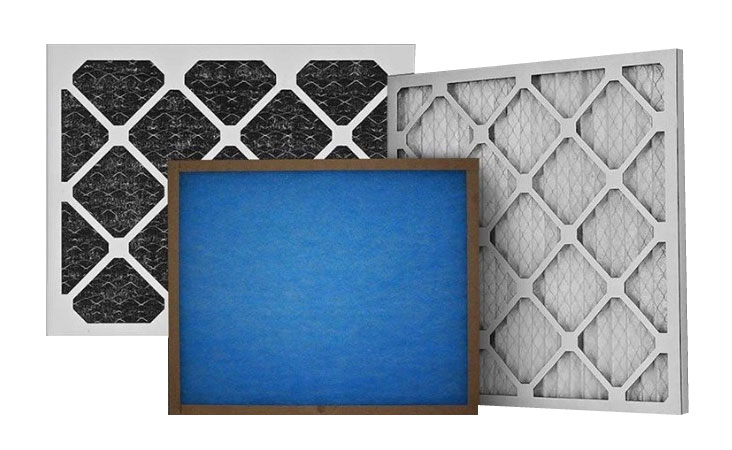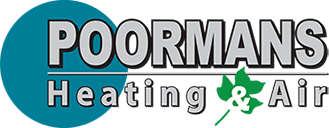Out of all the products regarding your HVAC system, the one thing you are most responsible for as a homeowner is the filter. The filter is what traps dust, pollen and other small particles and prevents them from recirculating throughout your home. It plays an important role in ensuring that you are breathing clean air. Therefore, it is very important to ensure that you have proper understanding of the variety of filters on the market and what they do. What’s the differences between the two most common filters: Fiberglass vs Pleated filters?

Fiberglass Filters
Fiberglass filters are made of spun glass encased in a cardboard frame. They are the flat, thinner filters Fiberglass filters can be easily found and are cheaper than the other filters on the market.
Pros: Fiberglass filters are popular primarily because of the affordable price. These filters can be bought for as low as $1, and are readily available at almost any home improvement store. Also since they are thinner, they allow more airflow, which puts less strain on your system as opposed to a pleated filter.
Cons: To no surprise, you get what you pay for. The lower cost of this filters means the effectiveness is not nearly as good as a pleated filter would be. And they need to be replaced more often. Fiberglass filters do not trap as many particles as a pleated filter would. They only trap the larger pollutants, like dust and dander. The smaller pollutants, like dander, smoke and bacteria are usually missed with these filters. Alos, fiberglass filters are not biodegradable and are therefore not eco-friendly.
Pleated Filters
Pleated filters are made from cotton, paper, or polyester and are folded into pleats. It is the most common type of filter to use because of its effectiveness in capturing air particles.
Pros: Pleated air filters are great for air quality because they can pick up much more pollutants than fiberglass filters do, such as pollen and dander. That’s why these filters are recommended for those with allergies or respiratory problems. These filters can also be recycled after use, making them much more eco-friendly than fiberglass filters.
Cons: The cost of a pleated filter ranges from $5-$20, and 4 inch filters can be around $50. This cost can add up, especially with someone who regularly changes out their filter. However, it is recommended to buy these in bulk, as you can save more money per unit.
Whether you use fiberglass or pleated filters, make sure that they are changed regularly to ensure protection of your HVAC system and your own health. If you have any questions, call Poormans for help. Or click here to check out our Filter Fundamentals blog for more information.
